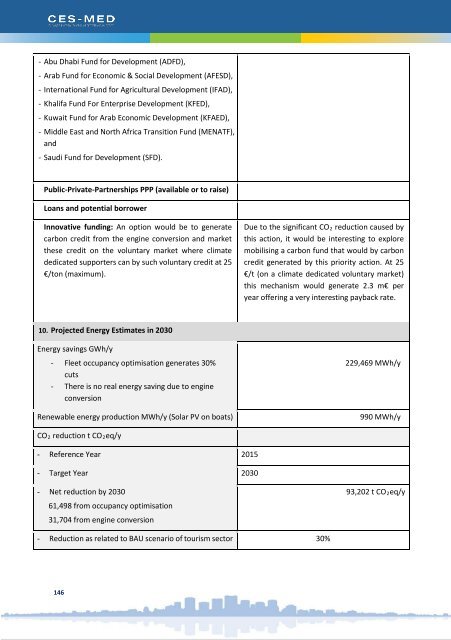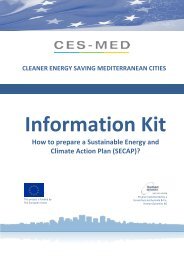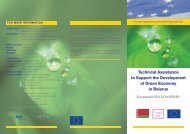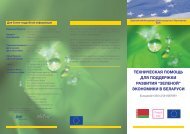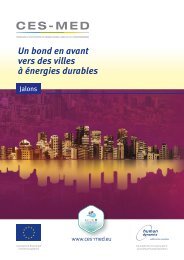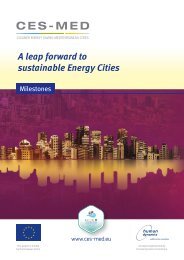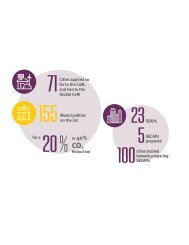130218_Luxor-Egypt SECAP Final
You also want an ePaper? Increase the reach of your titles
YUMPU automatically turns print PDFs into web optimized ePapers that Google loves.
• Energy efficiency is the cornerstone for policy makers to decouple energy demand and economic<br />
growth.<br />
Implementation plan<br />
Component 1: The Governorate of <strong>Luxor</strong> needs to get a more sophisticated understanding of water mobility<br />
and use of cruise boats for tourism and issues to be solved.<br />
Component 2: From the detailed description of issues at stake, the plan will draw strategic priorities with a<br />
double objective in mind – improve boats sustainable operation and reducing their environmental footprint.<br />
This could include:<br />
• Establish a coordination unit/organisation of tourist boats and water mobility needs and policies, while<br />
prioritising collective action to change mind set of boats owners such as cruise boats companies and<br />
small passenger boats regarding the possible optimization of boats occupancy to reduce the number<br />
of cruise boats not traveling at full capacity, and the benefits of not using diesel and instead use cleaner<br />
energy,<br />
• Structure the plan to convert boats and docksides in phases, (switch to natural gas and improve energy<br />
efficiency on board and use SWH and Solar PV),<br />
• Explore innovative solutions and technologies that would significantly change tourist cruise and small<br />
passenger boats,<br />
• Develop incentives as well as regulatory measures adding constraints on the use of private motor boats<br />
run by diesel and making it a more attractive choice to use natural gas instead, and<br />
• Implement a common methodology to measure GHG emissions, report on them and monitor all other<br />
benefits deriving from the development of sustainable boat operations by natural gas.<br />
Component 3: Engines conversion to CNG.<br />
Tourist Cruise Boat<br />
Each cruise boat consumes per weekly journey about 10-15,000 litres of diesels. Assuming each boat will<br />
make 4 journeys per month, each cruise boat will make 16-20 journeys per year during high seasons (3-5<br />
months). The total diesel consumed per boat and per year is estimated as follows (minimum and maximum):<br />
Minimum diesel consumption per Cruise boat/year = 16 x 10,000 = 160,000 litres = 136 t = 376,000 EGP =<br />
18,297 €<br />
Maximum diesel consumption per Cruise boat/year = 20 x 15,000 = 300,000 litres = 255 t = 705,000 EGP =<br />
34,306 €<br />
This means that CO 2 emission per boat and per season vary between 429 and 804 tCO 2eq.<br />
When switching from diesel to NG, energy consumption grows by a factor 1,1 due to less engine efficiency.<br />
140


